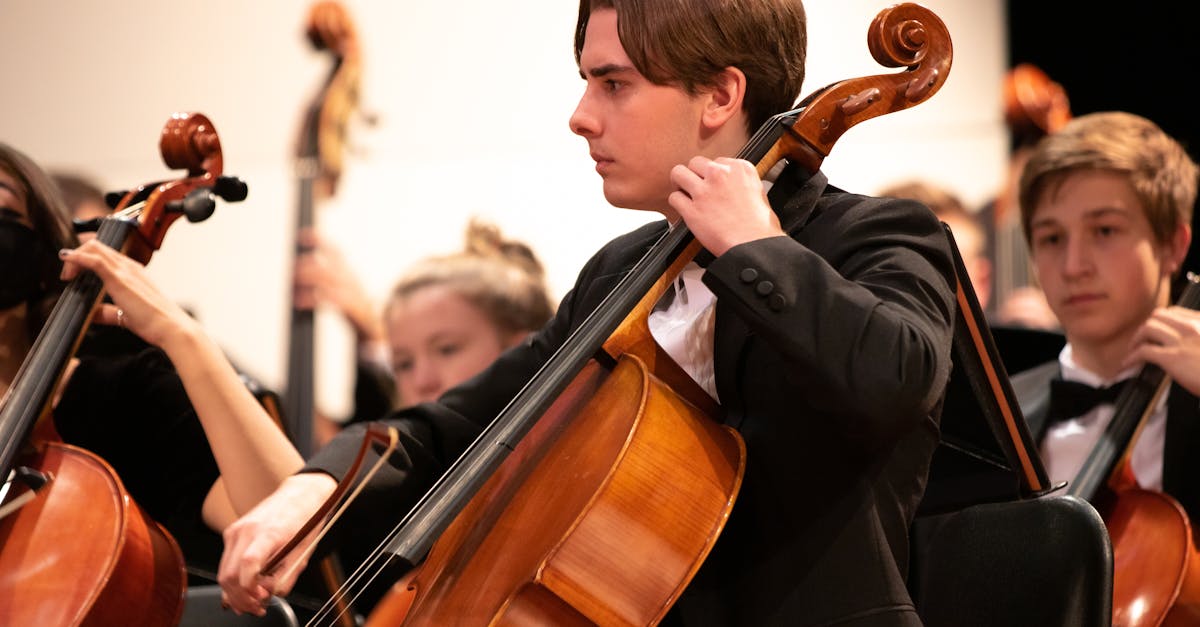Musical Notes Turning Health Tales
Introduction
Music is a universal language that transcends cultural and geographical boundaries, influencing emotions, and evoking memories. From calming lullabies to energizing beats, music plays a significant role in our daily lives. But beyond its entertainment value, music holds therapeutic qualities that can transform health tales for the better. The soothing power of music has long been recognized for its ability to heal and rejuvenate the mind and body. Recent scientific studies have proven that music isn't just a passive pleasure—it actively improves mental and physical wellbeing. Amid the stressors of modern life, could music be the harmonious antidote we've been seeking?
Advertisement
The Science Behind Music Therapy
Music therapy uses sound to promote healing and emotional wellbeing. Supported by rigorous scientific research, this therapy targets the brain's reward centers, releasing dopamine, the 'feel-good' neurotransmitter. Different genres and rhythms can elicit varied neurological responses, influencing mood and cognitive function. For instance, classical music is known to enhance concentration, while upbeat melodies can invigorate and inspire. By deploying therapeutic techniques like improvisation and composition, music therapy has shown promising results in clinical settings, assisting with pain management, anxiety reduction, and even aiding in disease recovery.
Advertisement
Easing Stress and Anxiety
Amid the pressures of contemporary life, stress and anxiety are common adversaries. Music provides a refuge, creating a calming environment that helps reduce stress hormone levels, thereby alleviating anxiety symptoms. Slow tempos and rhythmic patterns engage the parasympathetic nervous system, fostering relaxation and tranquility. Incorporating music into daily routines can become a preventive strategy, supporting mental health and resilience. In therapy, a personalized playlist may serve as a potent tool, with selections tailored to an individual's unique emotional needs, offering solace during turbulent times.
Advertisement
Cognitive Benefits of Music
Music's impact on cognitive function is profound, enhancing concentration and boosting memory retention. Engaging with music activates multiple brain areas, improving connectivity and promoting neuroplasticity—the brain's ability to reorganize itself. This capacity is especially beneficial in educational settings, supporting children with learning difficulties and enhancing academic performance. In older adults, engaging with music aids in delaying cognitive decline, preserving memory, and reducing the risk of Alzheimer's disease, thus fostering a longer, healthier life.
Advertisement
Physical Recovery and Pain Management
The therapeutic use of music extends to physical health, aiding in pain management and recovery processes. Studies reveal that music reduces pain perception by distracting patients and triggering the release of endorphins. In hospital settings, patients exposed to music during recovery report reduced discomfort, anxiety, and need for pain medication. Physiotherapists incorporate rhythm-based exercises, such as drumming or dancing, to seamlessly blend treatment with enjoyment, promoting physical rehabilitation and boosting morale during recovery journeys.
Advertisement
Sleep Improvement Through Music
Quality sleep remains elusive for many, impacting overall health. Incorporating tranquil music into bedtime routines can improve sleep quality by creating a serene pre-sleep atmosphere. Music's slow tempo decreases heart rate and blood pressure, signaling to the body that it's time to rest. This natural sedative effect enhances sleep efficiency and extends the duration of restorative deep sleep cycles. Over time, a musical bedtime ritual becomes synonymous with relaxation, facilitating easier transitions from wakefulness to sleep.
Advertisement
Music's Role in Emotional Wellbeing
Music is a powerful emotional catalyst, influencing mood states and prompting introspection. Its nuances allow individuals to process complex emotions, providing an outlet for expression. Music evokes empathy and connects listeners to a broader human experience, fostering emotional regulation and social interaction. In therapeutic contexts, clients engage with music to explore feelings they struggle to verbalize, making it a valuable tool in both individual and group therapy settings. Music fosters an appreciation of the present, promoting mindfulness and self-awareness.
Advertisement
Enhancing Social Connections
Music serves as a social glue, bringing individuals together, transcending differences, and promoting community bonding. Participating in musical activities such as choirs and bands nurtures team building, cooperation, and unity. These collective experiences promote mental health by reducing feelings of isolation and loneliness. Furthermore, community music projects have profound impacts on societal wellbeing, encouraging inclusivity and cultural appreciation while uplifting underserved groups and fostering social justice and change.
Advertisement
The Future of Music in Healthcare
Music's integration into healthcare is expanding, with emerging technologies enhancing its application. Innovative tools, such as AI-driven music therapy applications, tailor musical interventions to individual needs, optimizing therapeutic outcomes. Virtual reality environments incorporate soundscapes for immersive therapeutic experiences, amplifying music's healing powers. As research advances, the scope and credibility of music therapy in conventional medicine increase, promising a harmonious coexistence of art and science in future healthcare systems.
Advertisement
Conclusion
In a world seeking holistic health solutions, the therapeutic potential of music is unparalleled. From reducing stress to enhancing cognitive function, music offers a symphony of health benefits waiting to be discovered. This powerful art form addresses both physical ailments and emotional challenges, setting a rhythm for wellness that resonates across the realms of health care. Moving forward, integrating music into traditional therapy practices will enhance treatment effectiveness and uplift patient experiences. Let the powerful notes of music lead us into a future of well-being and connectedness, one healing melody at a time.
Advertisement

